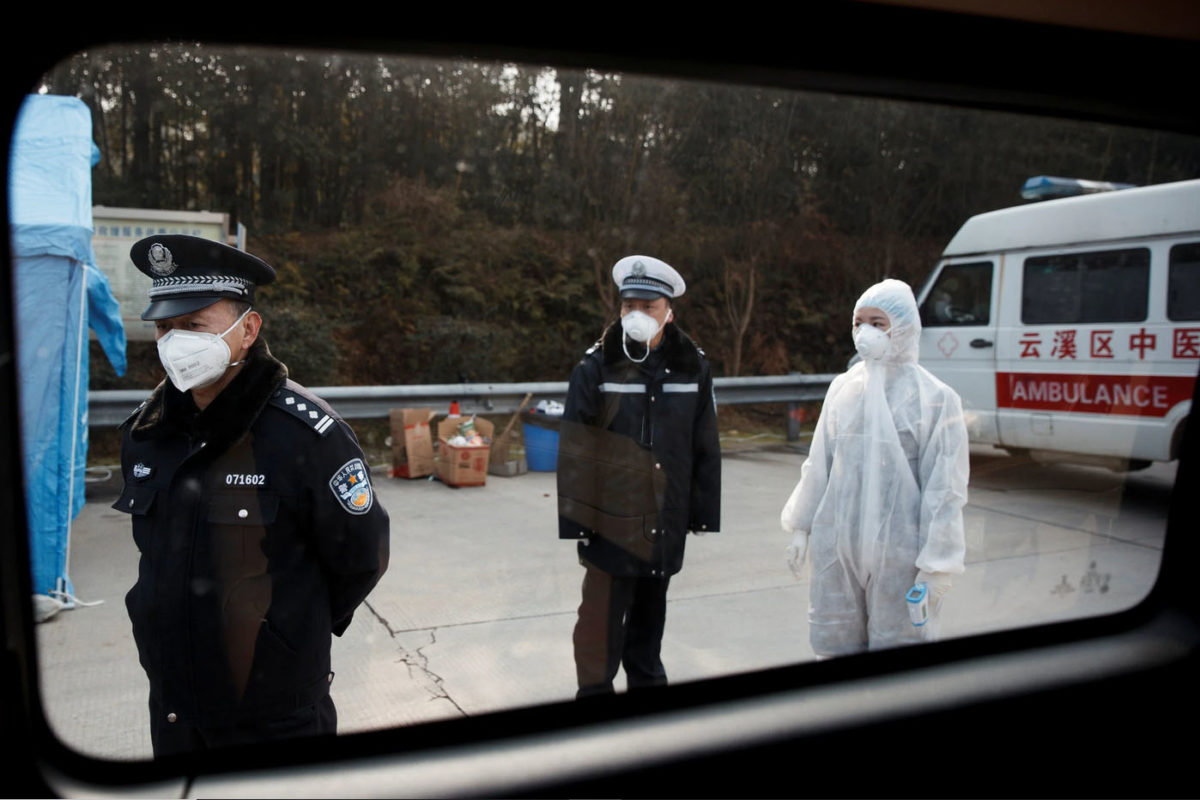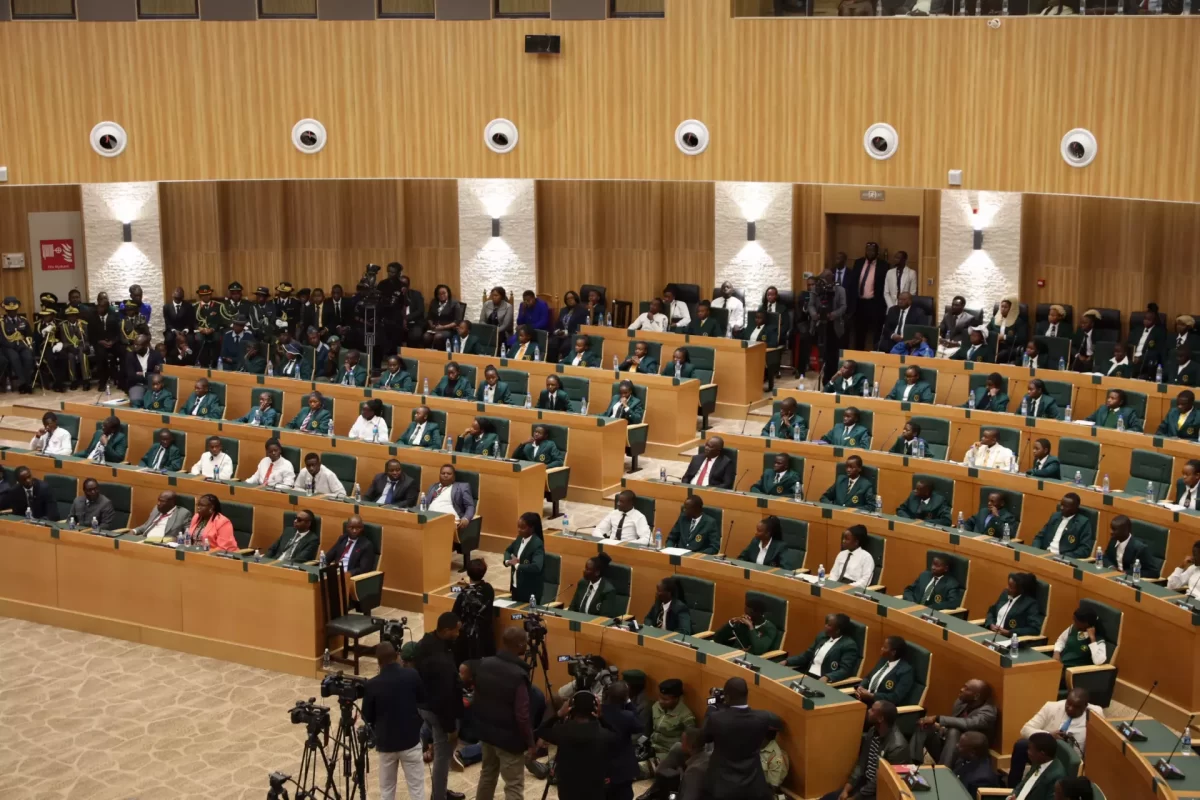BEIJING, China – The death toll in China from the deadly coronavirus outbreak that originated in the central city of Wuhan, rose to at least 361 on Monday, as the Philippines became the first country outside China to confirm a death from the infection.
The National Health Commission said there were 57 new fatalities on Sunday, all but one of them in Hubei, which has been effectively sealed off from the rest of the country for more than a week.
One nation after another is closing its doors to most Chinese travellers, as the death toll from the novel coronavirus continues to climb with no sign that the virus can be contained before it becomes a full-blown planetary health crisis.
China’s increasing isolation threatens to turn this new epidemic into a geopolitical conflict, intensifying pre-existing tensions between China and the United States and having potentially significant impacts on the global economy.
Zimbabwe, like most African countries with close ties to China, has so far resisted following in the footsteps of countries like the United States, Egypt, Canada, France, India, Germany, Italy, Kenya, Rwanda and the United Kingdom who have imposed restrictions on Chinese visitors.
The ministry of health said there are no cases of coronavirus in Zimbabwe, adding that it had prepared a “response mechanism and instituted surveillance on all persons coming from China.”
Some of China’s neighbours, including Russia, have closed their borders.
Such travel restrictions are contrary to public health recommendations and have riled Chinese government officials. The Foreign Ministry’s combative spokeswoman, Hua Chunying, singled out the United States, saying that the World Health Organisation has said such restrictions are not necessary.
A “certain country has turned a blind eye to WHO recommendations and imposed sweeping travel restrictions against China,” Hua tweeted Saturday. “This kind of overreaction could only make things even worse. It’s not the right way to deal with the pandemic.”
Hua said many countries have offered China support, but in contrast, “certain U.S. officials’ words and actions are neither factual nor appropriate.” That appeared to be a reference to U.S. Commerce Secretary Wilbur Ross, who last week said the coronavirus could “help” to bring jobs to the United States as companies moved operations away from China.
Hua said these “unfriendly U.S. comments” were “certainly not a gesture of goodwill.”
The coronavirus, which causes pneumonia-like symptoms, and for which there is no vaccine, was first identified in late December in the Hubei provincial capital of Wuhan. An early cluster of cases was found among people who had visited a seafood market where live animals were sold for consumption.
Bats and the catlike civets have been linked to previous mutations in viruses that have jumped from animals to humans, including severe acute respiratory syndrome (SARS), which began in southern China in 2002.
China’s National Health Commission reported Monday that there are now 17,205 confirmed cases of coronavirus infection on the mainland, plus 15 in Hong Kong and eight in Macao. The WHO reported 146 confirmed cases in 23 countries outside China. The U.S. Centers for Disease Control and Prevention on Sunday confirmed an additional case in California, involving a patient who had recently returned to the United States from Wuhan. That brings the U.S. case number to nine, with no deaths.
Scientists suspect the true number of infections may be many times higher than the official count. So far, 361 people have died, all but one in China.
The most serious illnesses appear to be in the elderly and people with preexisting medical problems, and it is highly contagious. Unless contained soon, it could become a pandemic — a disease that travels almost everywhere on the planet in the same manner as influenza.
The WHO on Sunday warned that the coronavirus is spreading not only disease, but also rumours, myths and misinformation.
A major outbreak in Africa, the WHO fears, could wipe out populations owing to poor medical facilities.
The Zimbabwe Hospital Doctors Association has called on the government to ban travel to or from China, after reports emerged that at least 129 people who were recently in China had been placed under a monitoring programme.
“They must effect travel bans now,” said Dr Anele Bhebhe, of the ZHDA. “It’s cheaper and more effective than trying to follow up more than 129 cases you have already allowed into the country.”
Bhebhe said Zimbabweans “should panic” because the country had a “health system which is non-existent.”
“This government will trade our lives for a few ‘mega deals’ with China,” Bhebhe said, alluding to Zimbabwe’s eagerness not to upset China for its own economic interests.
Zimbabwe’s ministry of information, in a statement last week, said it “values our traditional friendship with China” and “stands ready to assist China in this fight and continue to strengthen the ties between our peoples in various fields to the benefit of both countries.”
There are thousands of Zimbabweans studying in Chinese universities. Many Zimbabweans also travel to China to buy goods for resale as well as mining and farming machinery.
Dr Gibson Mhlanga, the ministry of health’s preventive service chief director, said in a January 31 statement that they “encourages those who planned to travel to China for non-essential purposes to defer their visit where possible until the outbreak has been declared over.”
Medical advice over the past two weeks has emphasised the need to wear masks to stop transmission through respiratory droplets from the mouth and nose.
The WHO’s standard recommendations for the general public to reduce exposure to and transmission of coronavirus stresses frequently cleaning hands by using alcohol-based hand rub or soap and water; covering mouth and nose with flexed elbow or tissue when sneezing or coughing and avoiding close contact with anyone who has fever and cough.

















